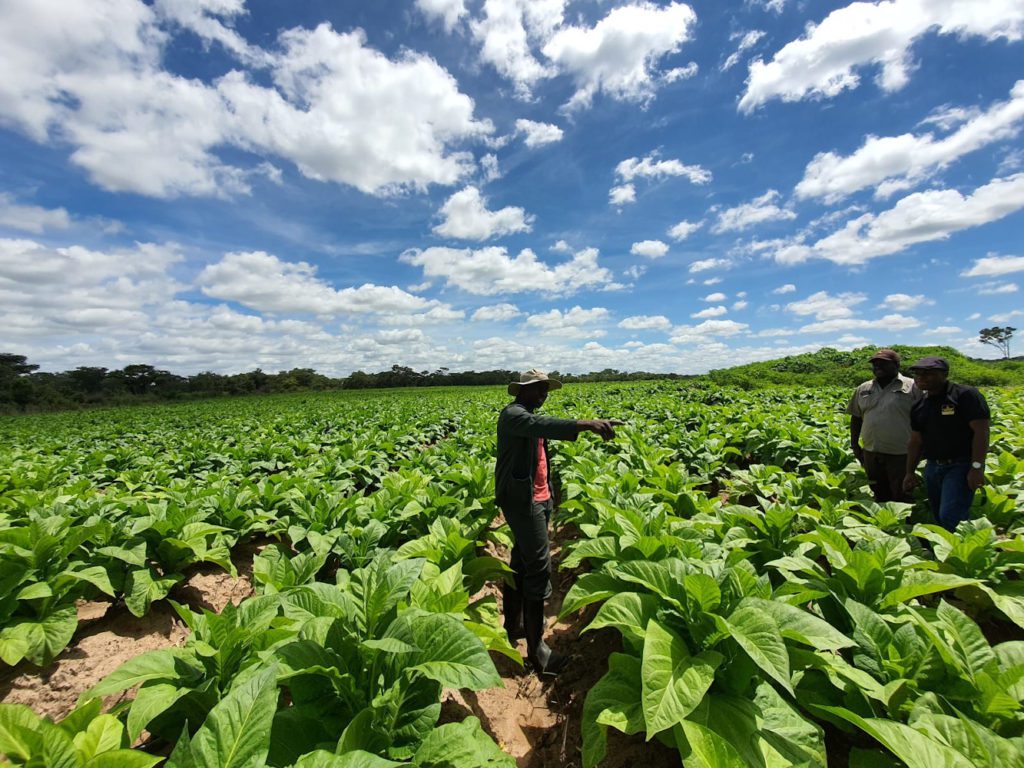
Zimbabwe’s attempt to diversify into cannabis is proving more challenging than some anticipated.
By Daisy Jeremani
Zimbabwe announced its approval for cannabis growing for medicinal and industrial use in April 2018 amid much hope for an immediate economic impact.
Finance Minister Mthuli Ncube projected export revenues of up to usd1.2 billion in the first year of growing, processing and exporting the crop and its products. The forecast is almost at par with what gold, the southern African country’s most lucrative export, brings in—and higher than the amount it generates from tobacco, its current No. 1 agricultural export. Cannabis was, too, touted as a diversification route for tobacco growers amid declining demand for the golden leaf.
However, experts have cautioned that Zimbabwe may not realize the benefits as rapidly as authorities initially projected. Forty-two months since the government issued the first licenses, only 15 out of the 57 companies have started work, hampered by a plethora of challenges. Chief among them: lack of financing and expertise.
Speaking to Tobacco Reporter just after her organization, Zimbabwe Industrial Hemp Trust (ZIHT), hosted a cannabis roundtable under the theme “Unpacking the Challenges and Potential of Cannabis as a Medicine” in Harare, the capital city, on Sept. 7, 2022, Zorodzai Maroveke said a lot of work still needs to be done for the country to realize gains from the crop.
A key proponent of legal cannabis production, Maroveke said most licensees lack guaranteed off-take agreements. An unstable market has not helped matters, she added, as prices have kept fluctuating since Zimbabwe became Africa’s second nation after Lesotho to legalize cannabis for medicinal and industrial use.
“An unstable market has been a major challenge for investors to move forward with this project in Zimbabwe and also the issue of funding. Most banks are not willing to finance cannabis because they still don’t understand it,” said the ZIHT founder and CEO.
Another obstacle for license holders is that they have to import expertise as this is a new frontier for the country. Recruiting the right skills is expensive. The cannabis regulatory framework, which she described as very strict, has also hampered the speed at which the industry is progressing.
Maroveke said the cost implications of growing medicinal cannabis are high, citing the European Union’s good manufacturing practices (GMP), which force producers to set up facilities of a high standard of hygiene and security and hire well-trained personnel.
“You will find that for a very small project, maybe even a hectare project, one would potentially pump out not less than usd1million,” said Maroveke.
So if one is to expand, there is a need for more funding, not considering money that must be paid for the GMP compliance auditors as well as inputs, like seeds, which are not only expensive but are also imported.
Though industrial hemp is generally cheaper to produce than medicinal cannabis, the cost depends on its type, she noted. If it is botanical, which is grain hemp for the CBD flower, one should be prepared to part with at least usd200 for a 5 ha project. The market determines the standards and quality that the farmer has to put in.
“So if you’re going to do hemp for fiber and grain, it’s obviously going to be cheaper; you’re looking at usd3,000–usd4,000 a hectare. But Zimbabwe’s hemp and grain industry hasn’t developed to that extent, so we don’t have many activities in those particular subsectors of industrial hemp,” she said.

The Sept. 8 roundtable was meant to find, bridge and plug the knowledge gap not only among health professionals but also other experts along the value chain. It is against that backdrop that a top Zimbabwean pharmaceutical supplier, New Avakash International, awarded scholarships to 100 health personnel to undergo training to make them more conversant with cannabis.
At the moment, local varieties are at the research stage. Due to the dictates of the market, buyers direct farmers toward the genetics they want, which at this stage are all imported. As a result, roundtable participants called for more investment in research and development and the development of local growing and processing expertise. As the industry tries to find its place, Maroveke said the government should support it through tax breaks and other incentives for cannabis value addition to be accelerated.
She said Zimbabwe will only realize the gains from cannabis once production kicks off and the export markets are stable and guaranteed.
Former Zimbabwe Tobacco Research Board (TRB) CEO Dahlia Garwe noted that the country leapt in headfirst without conducting proper market research.
“We were supposed to look at what kind of varieties we should be growing and where exactly the material will end. We have a lot of cases where people grew cannabis, but they don’t know what to do with it,” she said.
Garwe noted that the costs involved in setting up facilities for the processing of the herb and for a basic setup are as high as usd400,000. For a facility that is compliant with all the necessary health requirements, the costs can be about usd3 million.
With regards to research that is underway, she said experts are looking for locally adapted germplasm, with the TRB going around the country to identify varieties adapted to the local environment. After that, they would breed local varieties and material from elsewhere to come up with varieties that are most suitable for Zimbabwe.
“That is ongoing work. It will obviously take a few years before we get to a point where we say we have locally adapted varieties,” she said.
However, this is not to say varieties developed elsewhere can’t do well in Zimbabwe, “but that’s where the research comes in, where you’re actually evaluating varieties coming from elsewhere and you see whether they actually work or not.”
Speaking while commissioning a usd27 million medicinal cannabis project by Swiss Bioceuticals in May 2022, Zimbabwean President Emmerson Mnangagwa expressed frustration over the slow investment by licensees.
“It is disappointing that since 2018, only 15 out of 57 entities issued with cannabis licenses are operational,” he said. “Such licenses should not be held for speculative purposes, and those not using them risk government invoking the ‘use it or lose it’ principle.”
Former Tobacco Industry and Marketing Board chairperson Monica Chinamasa said farmers are still waiting for the ongoing research on varieties that are suitable for the local climate.
“We are still waiting for the TRB to guide us on this matter,” she said.
The EU requires GMP and good agricultural collection practices certificates to be in place before a cannabis producer can venture into that business. The financial implications for applying for the certification are huge for some Zimbabwean investors, said Munyaradzi Shamhudzarir of Voedsel Cannabis, one of the few Zimbabwe-owned companies to have planted cannabis.
“The process of getting these certifications is also very long—at least three years before you can complete all the audits and get certification,” he said.











